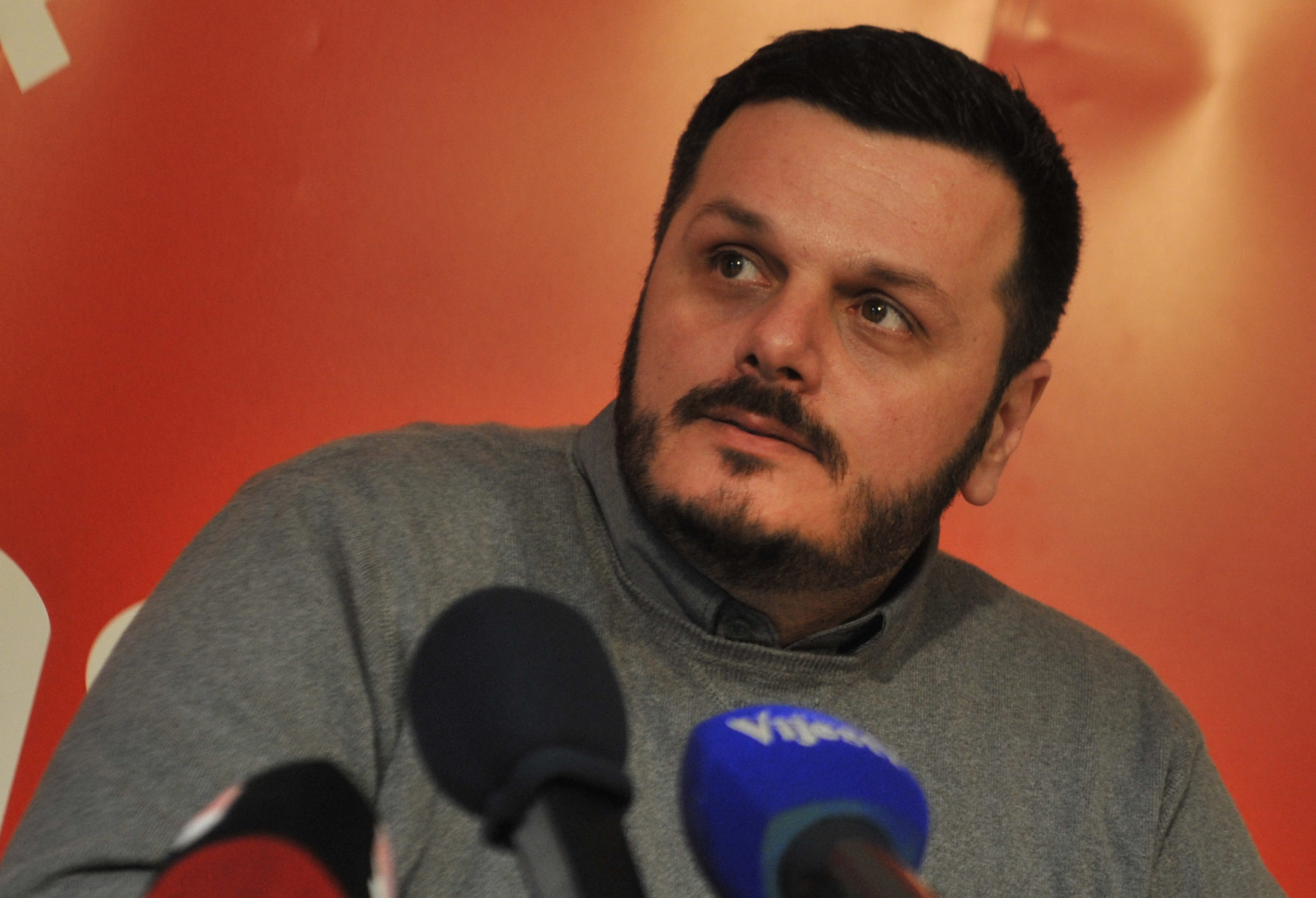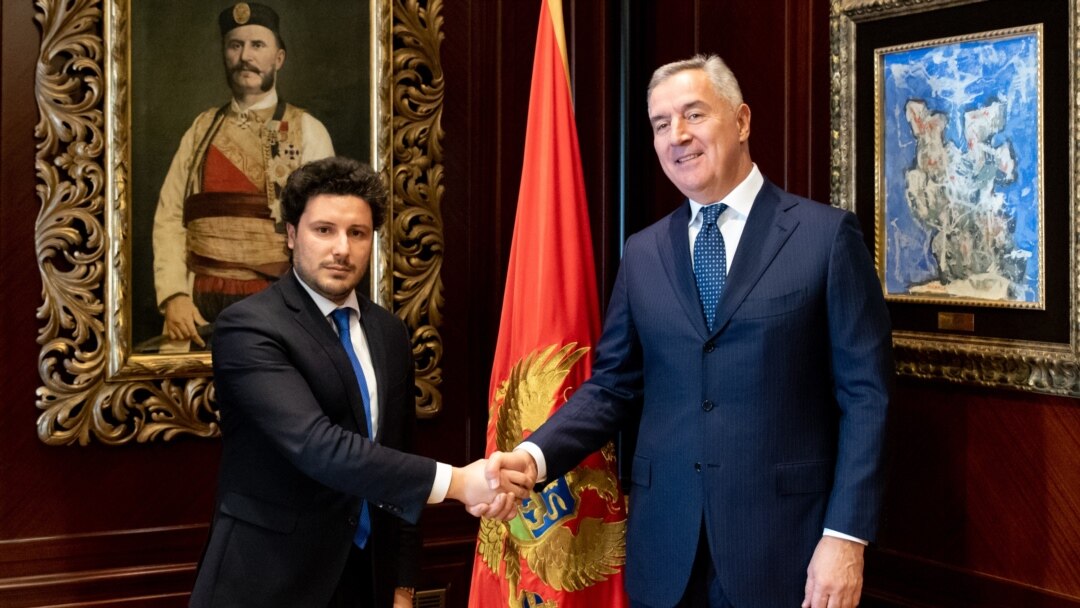“I am absolutely sure that from this distance, Đukanović and the interest clique around him would like us all to forget the enthusiasm with which suspicious Russian capital was welcomed, predominantly generated through a model of hectic privatization of state resources, to which local politicians and related tycoons were no strangers as well.”
MONITOR: As part of the cooperation in the investigation led by OCCRP and the Guardian on the property of Russian oligarchs, MANS obtained data on the property of Russian rich people in Montenegro. What exactly did you find out?
As part of the OCCRP investigative media network, MANS Investigative Centre is participating in a global investigation called “Russian Asset Tracker”, which aims to record the assets of Russian oligarchs close to Putin, but also all those in Russia who support his politics and aggression against Ukraine. First investigations resulted in records on assets worth close to 18 billion U.S. dollars, of which one part has not been known to the public so far, i.e. it has been hidden behind offshore companies that were the formal owners of luxury assets of Russian oligarchs.
When it comes to Montenegro, MANS further investigated the already known information that the family of the Moscow state prosecutor, Denis Popov, owns property in Kotor and Kolašin worth around three million euros. Our investigation showed that the purchase of land and the construction of villas in Kolašin was partially financed from two loans in the total amount of over one million euros, and that the money came to Montenegro through offshore companies from the British Virgin Islands and Nevis. This investigation opened a new round of questions to what extent did the previous Directorate for Prevention of Money Laundering control the inflow of money into Montenegro, especially in the years after gaining independence when predominantly Russian capital literally “splashed” our coastline.
MONITOR: Most of the capital of Russian oligarchs entered the country during the three-decade rule of the Prime Minister Milo Đukanović, who today speaks of the threat of Russian influence on the country. How do you comment on that?
I am absolutely sure that from this distance, Đukanović and the interest clique around him would like us all to forget the enthusiasm with which suspicious Russian capital was welcomed, predominantly generated through a model of hectic privatization of state resources, to which local politicians and related tycoons were no strangers as well.
During those years, no questions were asked about where the capital for the purchase of Aluminium Plant Podgprica (KAP) came from, which we sold to Deripaska through the Cypriot company, or whether the money that bought millions of square meters of land, mostly on Montenegrin coastline, was earned by an honest work. I hope that someday Montenegro will have institutions that are strong enough and able to examine how the money entered the country, what was its origin and with whose consent we managed to place the country in international circles as the ultimate destination for money laundering.
When it comes to Đukanović, it is unlikely that he is seriously worried about Russia’s harmful influence on Montenegro. Instead, he is interested in rehabilitating himself as the only true NATO partner for the EU and the U.S. after a series of political defeats, at home and in front of the international public. Unfortunately, the scandalous behaviour of the government of Zdravko Krivokapić regarding the war in Ukraine goes directly to his favour, and that is a chance that Đukanović obviously does not miss.
“Abazović’s concept of ‘reconciliation’ and ‘the most European government ever’, whatever that means, was just a smokescreen for finding partners in the part of the political spectrum that he “swore” in the 2020 elections would never be an option for any co-operation, let alone support for a minority government.”
MONITOR: On the other hand, current authorities are late with imposing sanctions on Russia. You warned that this directly affects the EU integration process.
Since the beginning of March, MANS has been pointing out the fact that the government of Zdravko Krivokapić has done almost nothing to actually operationalize political messages sent to Russia regarding the aggression against Ukraine. Unfortunately, we still do not have a formal decision on the introduction of sanctions that would provide a mandate to the competent state institutions to do their job, i.e. start acting as their counterparts from many EU countries, which are well underway with freezing of assets and capital of persons and companies on the sanctions list due to the war in Ukraine.
The message that is sent to the international community is not good, especially when it comes to the so-called Euro-Atlantic partners of Montenegro who expect cooperation from our country even when the measures to be adopted are not popular. In this regard, latest local elections in Ulcinj and Berane have shown that the lack of a formal decision on sanctions also has its local political impact. Thus, there was a situation where the support for the movement “Berane Sad!” which is officially supported by Ministers Milojko Spajić and Jakov Milatović, literally halved after the two of them declared themselves as supporters of the imposition of sanctions on Russia.
Unfortunately, in this case as well, we had the opportunity to see that party calculations and interests are, as a rule, placed before the interests of citizens, legal obligations or, when it comes to sanctions, assumed international obligations.
MONITOR: What is your opinion on the process of forming a minority government? And its capacity for promised changes?
What has already become obvious is that not everything is going according to the plan of the Prime Minister-designate Dritan Abazović, and that negotiations with certain political parties are taking longer than he expected. Unfortunately, that plan is still hidden from the public, except for the parts where there is a ‘bidding’ for ministerial positions and departments, which has turned into a distasteful farce in which it is certain that the only losers will be citizens.
Abazović’s concept of ‘reconciliation’ and ‘the most European government ever’, whatever that means, was just a smokescreen for finding partners in the part of the political spectrum that he “swore” in the 2020 elections would never be an option for any co-operation, let alone support for a minority government.
In this regard, the government that is going to be the result of such negotiations and compromises cannot be the bearer of serious reforms that are promised to the citizens as a way out of the indisputable crisis into which the Government of Zdravko Krivokapić has introduced us. Somehow the thesis that Dritan Abazović was not part of that Government, and that he does not bear any responsibility for its failure, is trying to be “sold” to the public, while in reality, it is quite the opposite.
After hearing statements from politicians on a daily basis that they are ready to take the responsibility, it would be good for that to finally happen, and I do not think that those who did not take responsibility for obvious failures in the government led by Zdravko Krivokapić now have a “mandate” to present themselves to the public as the only path left for Montenegro.
This is the peak of political hypocrisy that counts on the short memory of the citizens of Montenegro and as such cannot be a good basis for any reforms that will push this country forward.
MONITOR: What about situation in the Parliament? While the war in Ukraine is happening, as well as food shortages and sharp price hikes, here we are talking about elections and positions. And even those who address vital issues do so as if they are doing it only within the political game. What does the political situation look like today, does anyone care about the public interest?
The situation with the Parliament of Montenegro, whose work is blocked by the interests of each party individually, is an excellent indicator of the extent to which our country is still a captive society. Today, perhaps more than ever, the Parliament of Montenegro and all MPs in it, have the opportunity and power to do something concrete and direct in order to enable the citizens to handle the impact of the crisis on their budgets at least to some extent.
Instead of concrete decisions, we have endless wars of statements and parties that are deeply entrenched into what they believe is the interest of citizens, as certain political actors like to call it “people’s will”, but in fact, they are only political interests.
All parties, without exception, have spent the time since the 2020 elections predominantly to strengthen their voting base, mostly at the expense of state resources, while there have been no key reforms. It is devastating that the political majority that inherited DPS decided to follow in their footsteps in many areas and miss the historic chance to finally give this country a break from the crime, partitocracy, nepotism and systematic destruction of economic and social substance after thirty years of dictatorship by Đukanović and DPS. It was not the job of Krivokapić’s government alone, which is now comfortably targeted by political parties as the sole culprit for the betrayed expectations of citizens.
MONITOR: What do you think about the fact that many ministers-experts from the outgoing government decided to stay in politics, and do not think about returning to their profession?
Whether ministers will return to their profession after the fall of the government or remain in politics is less important than the fact that we currently have a new round of unscrupulous use of state resources in order to strengthen party bases in the run-up to local elections, as well as to strengthen new movements such as the one that relies on the brand of economic programme Evropa sad (Europe now). Unfortunately, this is an indicator that the bearers of political life, whether they are experienced or those who are just trying in those waters, are not immune to what was the worst practice of DPS in the eve of almost every election.
Unfortunately, the time behind us after the fall of DPS has shown that political employment is completely normalized as a phenomenon, and that, for example, the functionary campaign is still a common behaviour, only now with other actors. It is a circle that must be broken if we as a society wish to move forward.
MONITOR: How do you comment on his latest interview on RTCG? There were some threatening tones.
Đukanović is obviously encouraged by the position brought to him by the possibility of negotiations on a minority government with Abazović, but also by the completely inadequate relationship that the Government of Krivokapić has had so far regarding the war in Ukraine. From that position, there is a perception that Đukanović has the capacity to recreate the political and social situation in the country in his own way, and I think that is one of the key reasons why he will support the minority government of Abazović, who has already proved that behind the declaratively expressed willingness to fight corruption are only empty words that cannot in any way endanger the political and other interests of Đukanović.
MONITOR: What did the local elections in Berane and Ulcinj show?
The elections in these two municipalities showed that political actors are not interested in electoral reform, but that they are completely relaxed when they play by “DPS’ rules”, i.e. when they use all possible means without hesitation to achieve the best possible election result. Unfortunately, most political parties will use the result of these elections to strengthen their position in the negotiations on the minority government, while we have heard very little concrete things regarding the development of these two municipalities. In that sense, the elections did not bring anything new, at least not for the citizens who expected changes instead of political trade.






